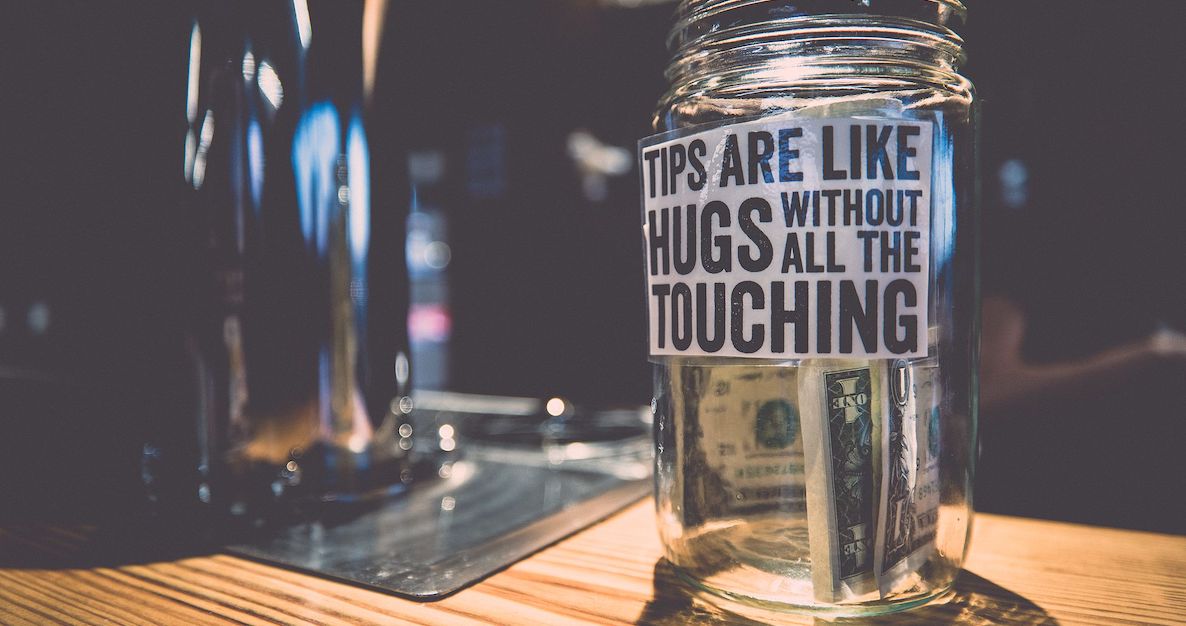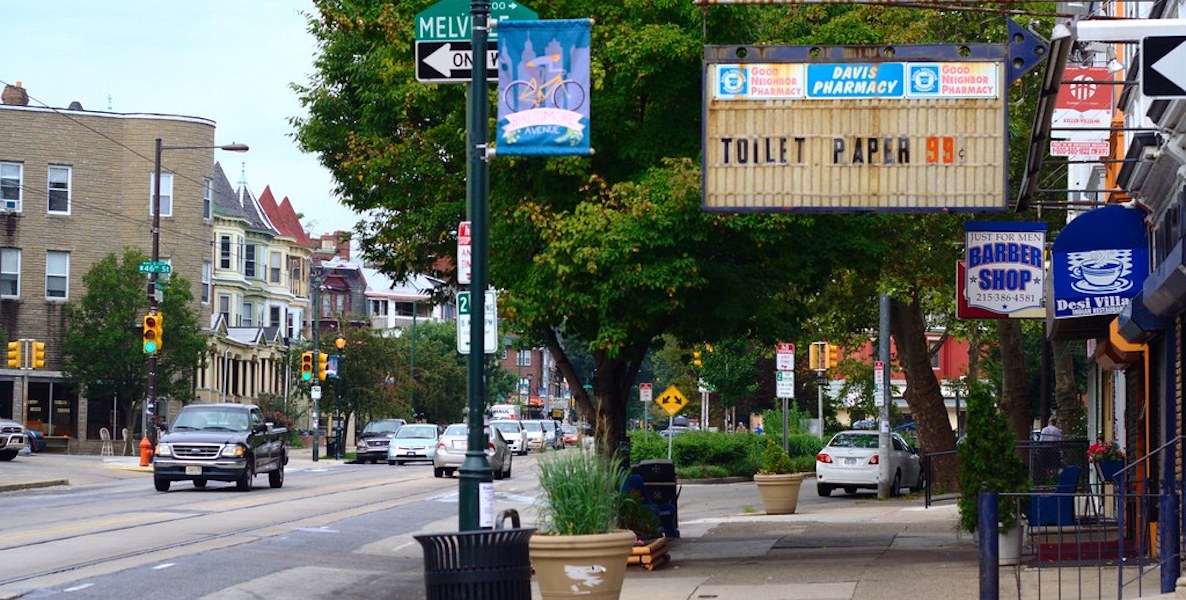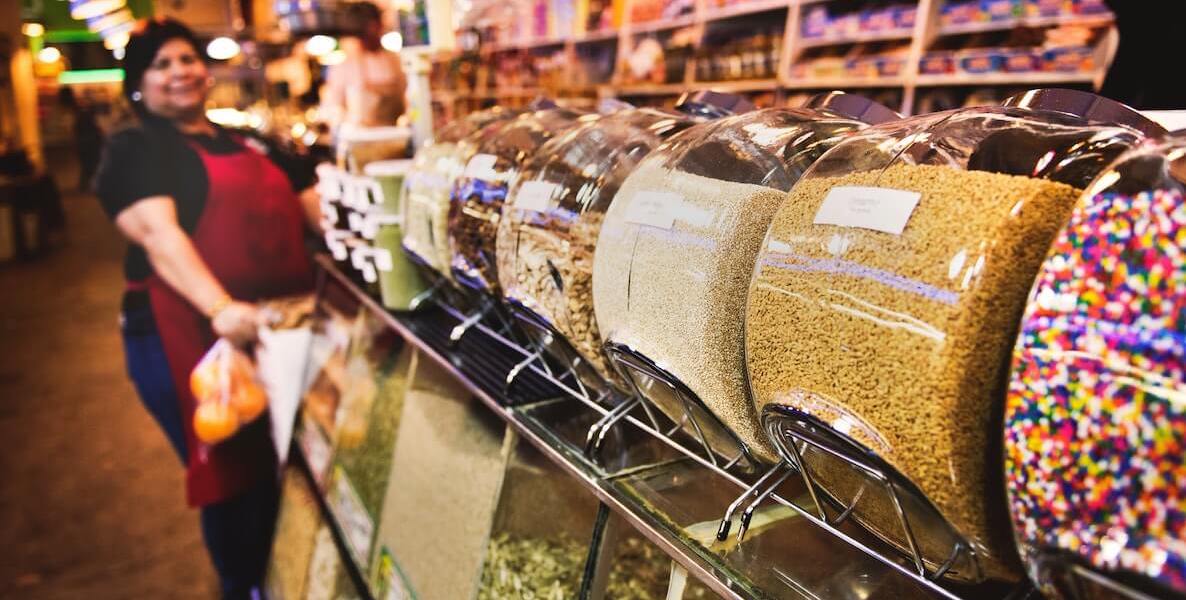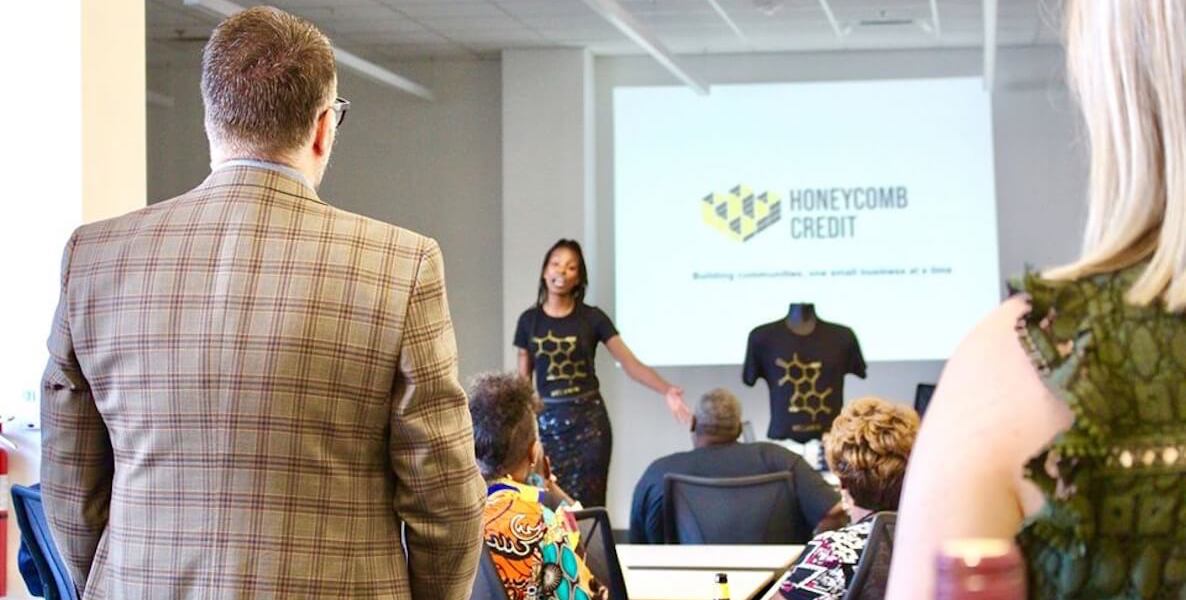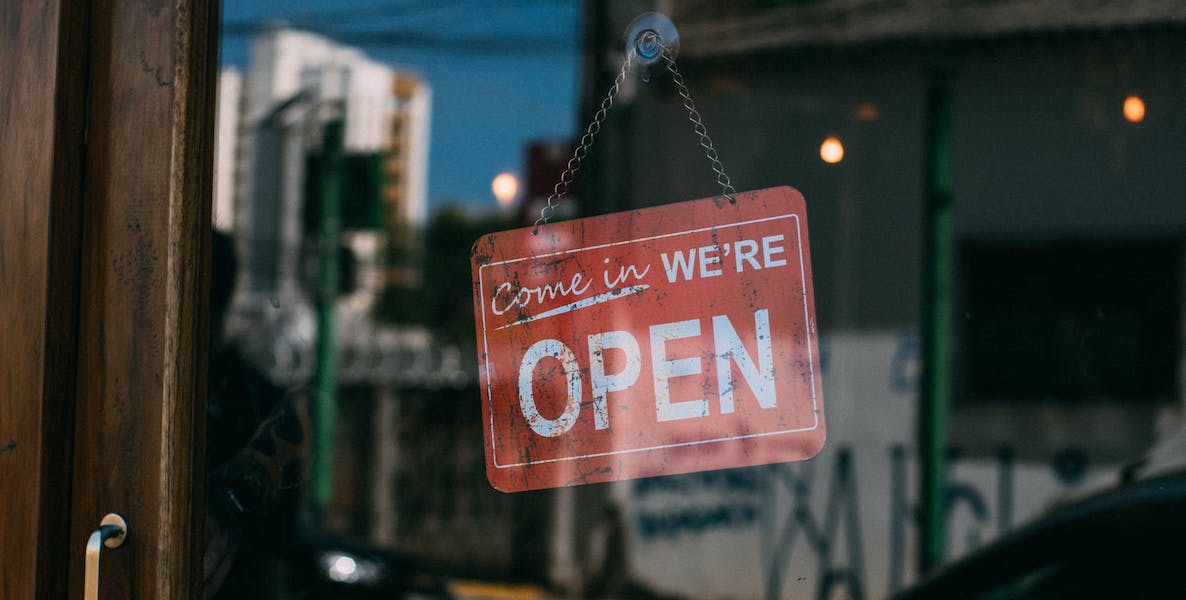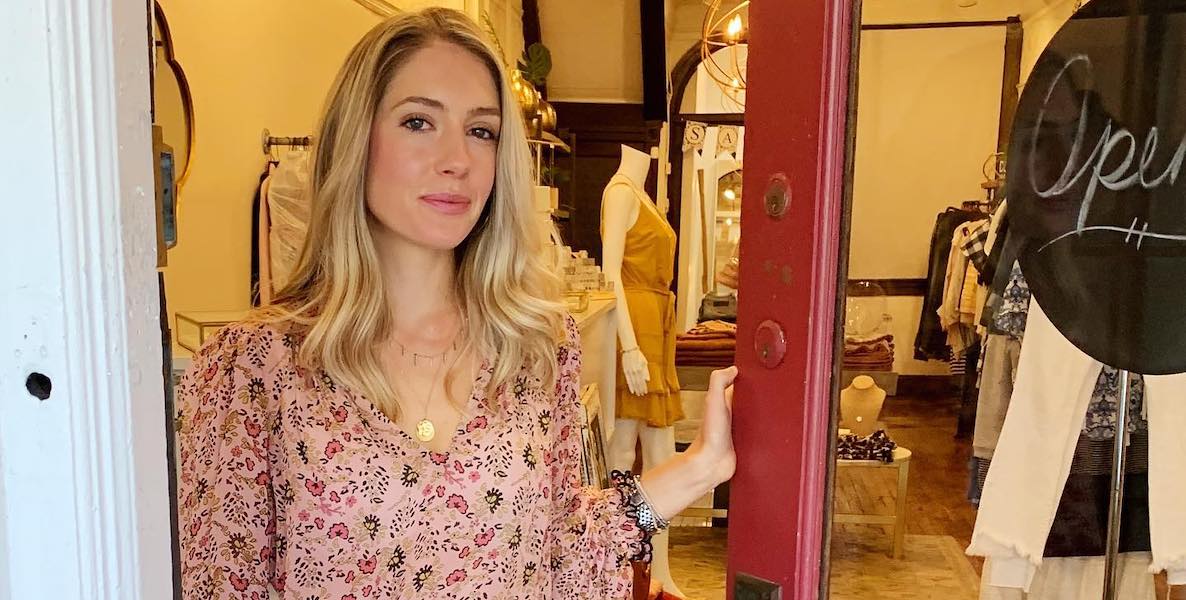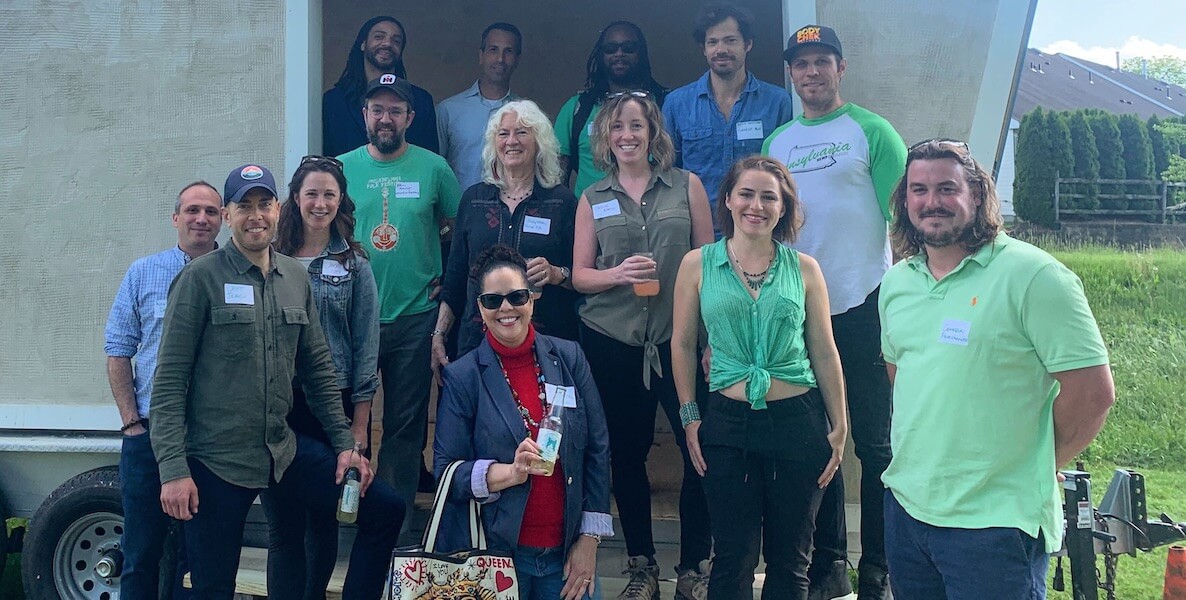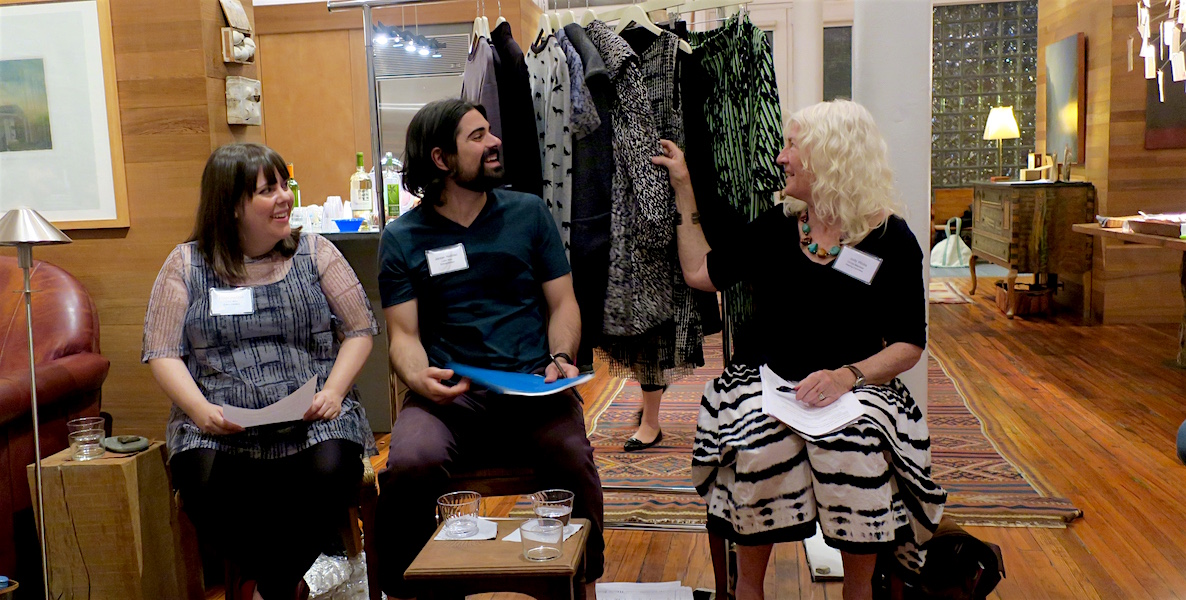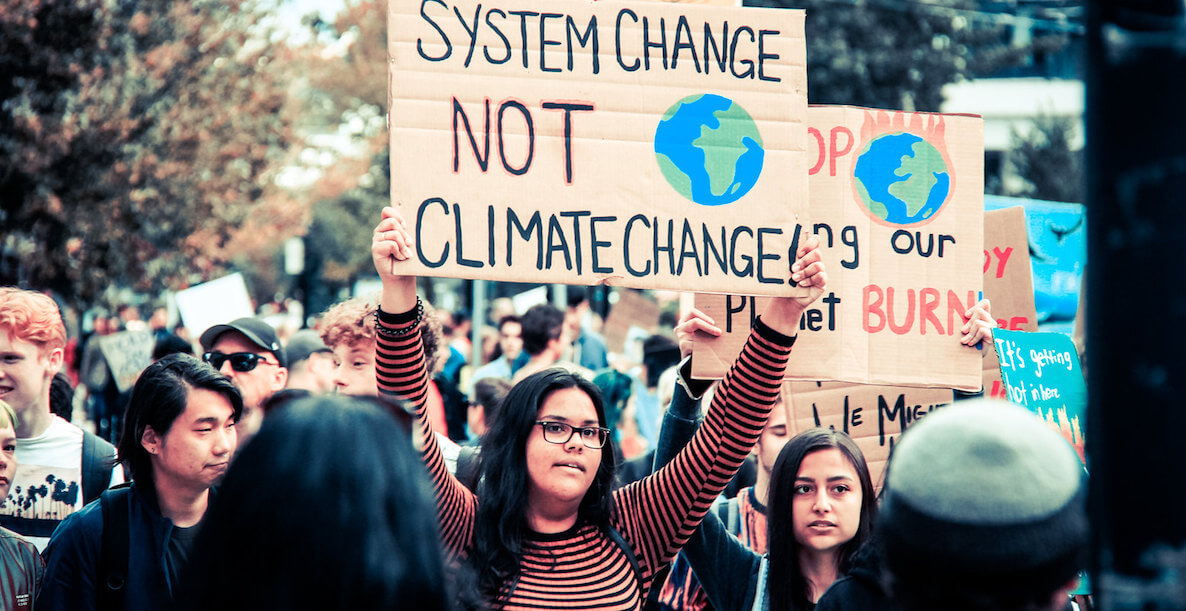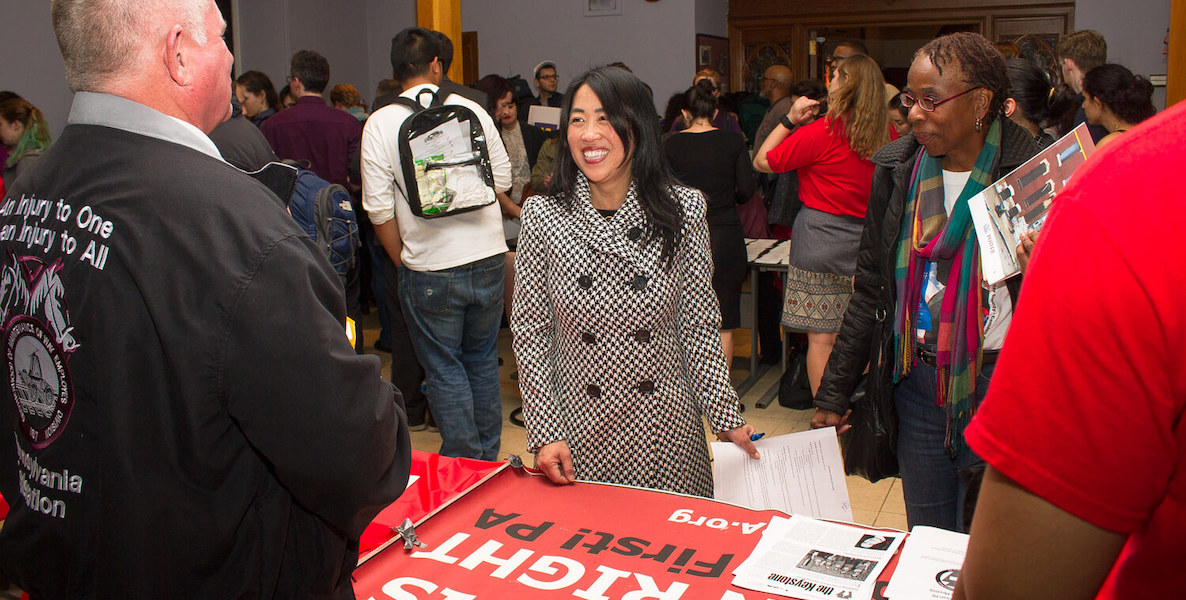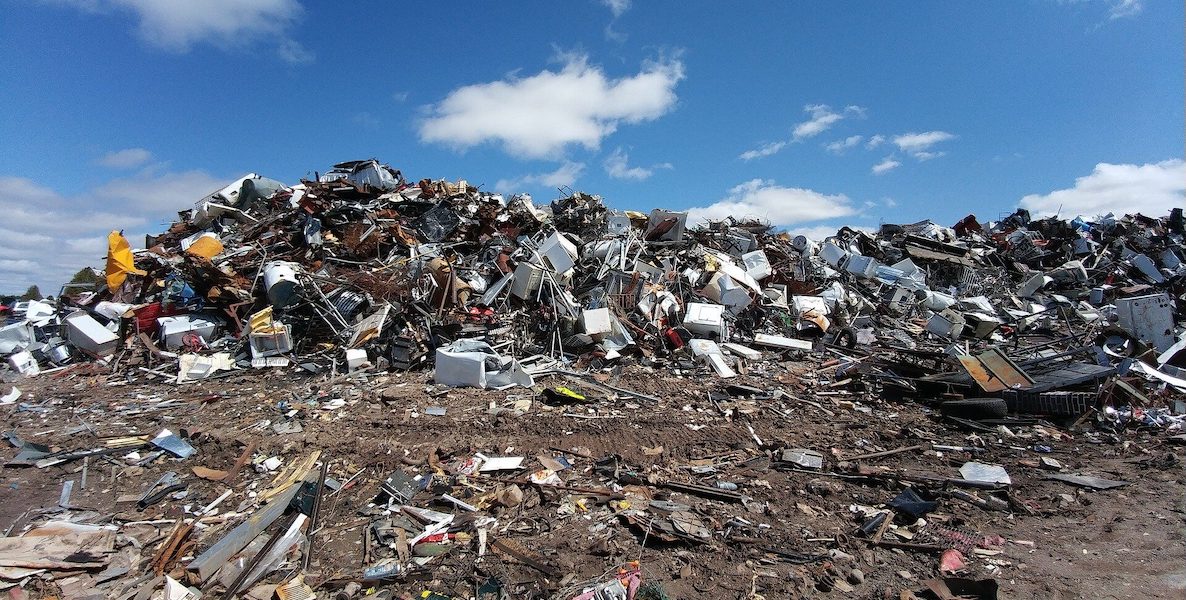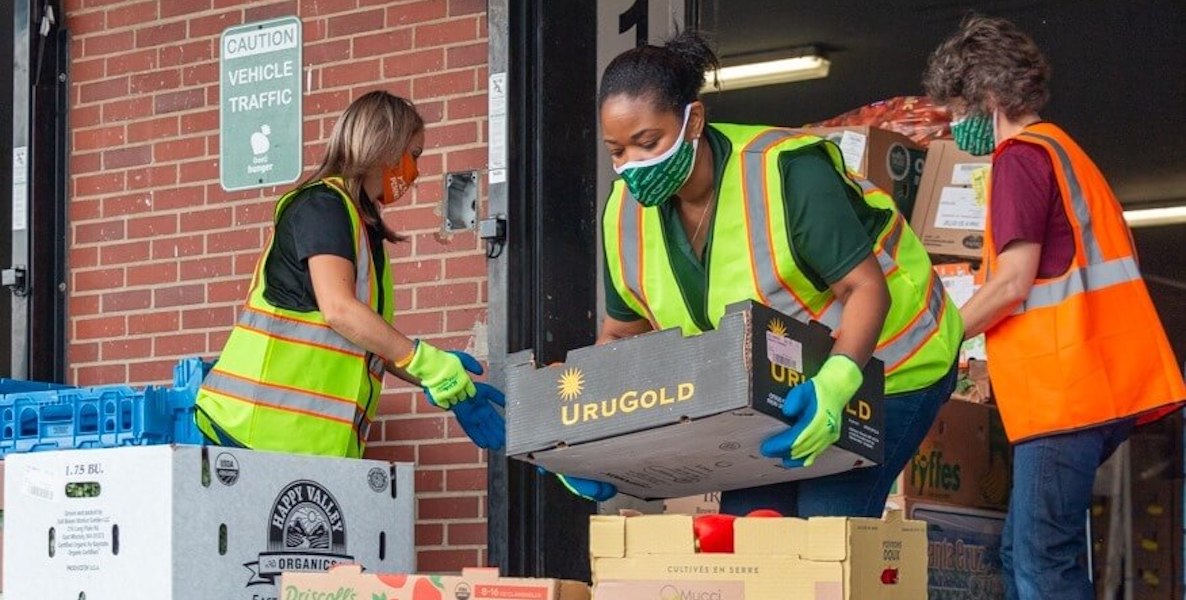When Judy Wicks opened the White Dog Cafe 37 years ago, she became the first restaurateur in Philadelphia to embrace a concept we have come to take for granted: Farm to table. For Wicks, that meant buying meat and produce from local Pennsylvania farms, cooking it in her West Philly kitchen and serving diners from all over the region.
![]() That model made her business among the best of Philly’s restaurants for decades—and helped keep small local farmers afloat at a time of increased corporatization of our foodways.
That model made her business among the best of Philly’s restaurants for decades—and helped keep small local farmers afloat at a time of increased corporatization of our foodways.
Now retired from the restaurant business, Wicks—who also launched the Sustainable Business Network and Circle of Aunts and Uncles—is diving back in where she began. Her newest initiative, All Together Now PA, aims to create resilient regional economies throughout the state by connecting Pennsylvania farmers, for example, with urban entrepreneurs. And while a pandemic was far from her mind when she dreamt up this project, Wicks thinks our current economic crisis shows just how broken our systems are—and how desperately we need to change.
The project, which has been in the works for a year, proves that Wicks—once again—has a vision we would be wise to follow, especially as we emerge from the cloud of coronavirus and seek a path forward. In Wicks’ view, we can’t just go back to business as usual. Another global disaster is bearing down on us: climate change. It’s time we learn from one crisis and begin preparing for another.
“Because of climate change,” Wicks says, “I really believe that the human race is being challenged. We’re either going to continue as we are and become extinct, or we’re going to take a big step in our evolution, to have values of cooperation and compassion and sharing, rather than greed and violence and domination.”
We talked to Wicks about her plans for the project—and why the global pandemic has given it new urgency.
Brianna Baker: Why did you start All Together Now PA?
Judy Wicks: I was thinking about what a heartbreak it was how our rural and urban communities developed misunderstandings and lack of trust and even animosity that’s been amplified by national politics. And having run a farm-to-table restaurant where I had very close relationships with farmers, it made me think about how it’s not always been this way. There was a time when our region had a local economy that was co-created by rural and urban communities. And it was based on trust and respect and the understanding that survival depended on the good relationship.
![]() That was all destroyed by corporate globalization, which brought in cheap foreign goods that put out of business our manufacturing industry and brought about the corporatization of our local food system, where so much of the control went to large corporations. I saw the need to unite rural and urban communities to co-create local supply chains that bring us our basic needs locally.
That was all destroyed by corporate globalization, which brought in cheap foreign goods that put out of business our manufacturing industry and brought about the corporatization of our local food system, where so much of the control went to large corporations. I saw the need to unite rural and urban communities to co-create local supply chains that bring us our basic needs locally.
BB: Why are our local supply chains so important—and how do the current pandemic and climate crisis underscore that?
JW: Climate change is making long-distance global supply chains unreliable, because of increased chaos in our weather systems. And now, obviously, we’re understanding that the supply routes can be disrupted by a disease.
In a sense, climate change was largely the result of the global economy. A lot of the carbon that we produce powers the global economy. Oil is the lifeblood of globalization. Without cheap oil, we couldn’t afford to be sending boats and planes and trucks everywhere so inexpensively—and so unnecessarily, because there are so many goods that are shipped that we could produce locally.
Local economies will not only reduce our reliance on global supply chains, thereby reducing our carbons, but also prepare our communities to survive climate change because we need to have local self-reliance. And I do feel that the survival of future generations depends on what we do now to build local self-reliance for our basic needs.
But with a pandemic, we also see that we should be turning to our local businesses. The problem is that a lot of them have been shut down. So how do we keep them alive during this pandemic? And how can we reconstruct our local supply chains? For instance, the farmers who have been delivering to restaurants, like the White Dog Cafe. That was one of the hallmarks of my time there, buying from local farmers.
So what are those farmers doing now that those restaurants suddenly are closed? We have to find ways for those farmers to bring food directly to our households. This could be seen as a wake-up call about how we need to reorient our economies to be locally self-reliant and resilient.
These ideas also address inequality, because the system that we have is really based on large corporations shipping basic needs around the world. That system extracts wealth from our communities and consolidates it in the hands of large corporations and wealthy individuals. So when we produce our basic needs locally, we’re keeping that capital circulating in our own economy instead of having it drained out. It makes a huge difference with addressing inequality and having a more egalitarian economy and ultimately a more democratic country, because so much of our politics is controlled by large corporations.
BB: Speaking of politics—do you think political and ideological differences could present an obstacle in uniting urban and rural communities?
JW: I actually feel that the larger struggle in the country is not left and right, not Democratic versus Republican, but corporations versus community. We need to elect politicians who understand that and who are not dependent on the contributions of corporations, but rather are working for the interests of communities. And that’s not a partisan issue.
There are certainly just as many Democrats at the bidding of large corporations who fund their campaigns as there are Republicans. And this whole concept of local self-reliance and community self-reliance is the political meeting place of the left and the right. The right has long valued self-reliance and the left has long valued community, so All Together Now puts those two together.
BB: You plan to support local supply chains in six industries. How did you choose those industries?
JW: We have six priorities for local economies in Pennsylvania: local food, of course. And then I chose two fields that have newly developed industries, which are industrial hemp and plant medicine. The plant medicine section includes traditional herbalists, like ginseng and goldenrod and all those various plant medicines that people are familiar with, and then also the newly legalized medical marijuana and CBD. The big idea here is to move our purchases away from outside pharmaceutical companies as much as we can, and learn how to use plant medicines that can be grown closeby. Cannabis in general has been illegal for 80 years. So now it’s legal and these are new industries that we have the opportunity to come in on at the ground level and support small farmers and small businesses and not be monopolized by outside corporations.
The fourth is zero waste. The idea behind that is that waste needs to be dealt with where we create it. We can’t have a system that puts our waste on boats and sends it to other countries or put it in trucks and drives it to low-income communities where we burn it and cause harmful pollution. We have to reduce the waste we have and we need to find the solution for this at the local level.
The fifth one is renewable energy; obviously we have to transition.
And the last is local tourism, the idea that, rather than getting on a plane and flying to London or the Bahamas or Hawaii, we get in an electric car and go to Jim Thorpe for their fall weekend to explore the rural areas of Pennsylvania. And we ensure that our dollars are propping up rural businesses like breweries and wineries and, hopefully, marijuana-growing farms.
BB: Can you give me specific examples of projects you’re working on within those six industries?
JW: The local food coalition developed the Pennsylvania Grain Coalition to connect grain farmers with millers, bakers, brewers, pasta makers and distilleries. And there’s a reason they’re choosing to promote grains. Another thing about climate change is that we have to reduce consumption of meat and animal products because they create a large amount of greenhouse gases. If we’re going to reduce animal protein, we need to increase plant protein. So having our bread, pasta and beer made from local grains is reducing the carbons of long distance shipping, reducing the carbons of animal production and supporting our local farmers with great tasting products that have plant protein in them.
And for industrial hemp, there are farmers across Pennsylvania that are growing hemp, but there are not complete supply chains because there are not enough processors and enough end users. All Together Now is working on forming a farmer’s cooperative that would process the hemp. We’ve gotten the attention of some government agencies that we’re hoping to get funding from, and this would empower and enrich farmers who usually don’t make much money from a crop just by selling it. But if they also can process it and will be engaged in other products, then they will make more money, which they deserve. That will not only fill that gap and strengthen the local supply chain but will also empower disadvantaged communities, such as farmers.
BB: I know that supporting disadvantaged communities is a big part of your platform and you’ve explained how you’re doing that within rural areas, by supporting farmers. Do you have any plans for supporting disadvantaged communities within cities?
JW: A lot of things are still in the planning stage. And we need to get funding in order to go too far with all this, but one of the ideas in the plant medicine area is to start businesses that would benefit entrepreneurs from the communities that had been harmed by the war on drugs. One of our ideas is to start a cooperative of CBD edibles, where we would work with a workforce development agency that would identify inner city entrepreneurs and help them start a cooperative to produce a product that could be sold within their own community.
And then when adult recreational marijuana is legalized, they could also do THC edibles. If this industry just gets monopolized by white guys in California while black guys are in prison as we speak for nonviolent offenses, that is such an injustice.
BB: Can you tell me about your goal to lead a “Revolution of Values”?
JW: That’s a term that Martin Luther King Jr. used in the ’60s, saying that we need to move from a thing-oriented society to a people-oriented society. And as we grow this locally-based economy, we have to be very conscious to model the values that we see as important: cooperation, generosity, partnership, fairness, compassion and a respect for all people and all species and nature itself.
![]() We need to move away from the cutthroat policies of business as usual that are about competition and dominating nature and seeing profit as the prize or the goal, instead of seeing money as simply a means to better serve our communities in our particular ecosystems.
We need to move away from the cutthroat policies of business as usual that are about competition and dominating nature and seeing profit as the prize or the goal, instead of seeing money as simply a means to better serve our communities in our particular ecosystems.
We’re at that turning point now where we need to choose the future we want for our children. It’s not just about saving the environment, it’s about acting towards each other and towards nature in a cooperative and nurturing way, bringing more feminine energy into our economy that’s about nurturing as opposed to simply efficiency and profit- making.
BB: What can the rest of us do to support this initiative?
JW: People can go to our website and sign up to be on our mailing list. We’re going to be sending a newsletter once a month about what’s going on in each of our areas. And we’ll be highlighting different local businesses. There’ll be steps that people can take in each of our areas to help build local supply chains. We also have a donate button on our website. We plan to have community-building events that’ll be fun, as well as events that share information about building local resilience and self-reliance to mitigate carbon and prepare for climate change.
Header photo: Judy Wicks, with white hair in center, with the Industrial Hemp Coalition in from of a mobile house made of hempcrete. Courtesy of Wicks.


